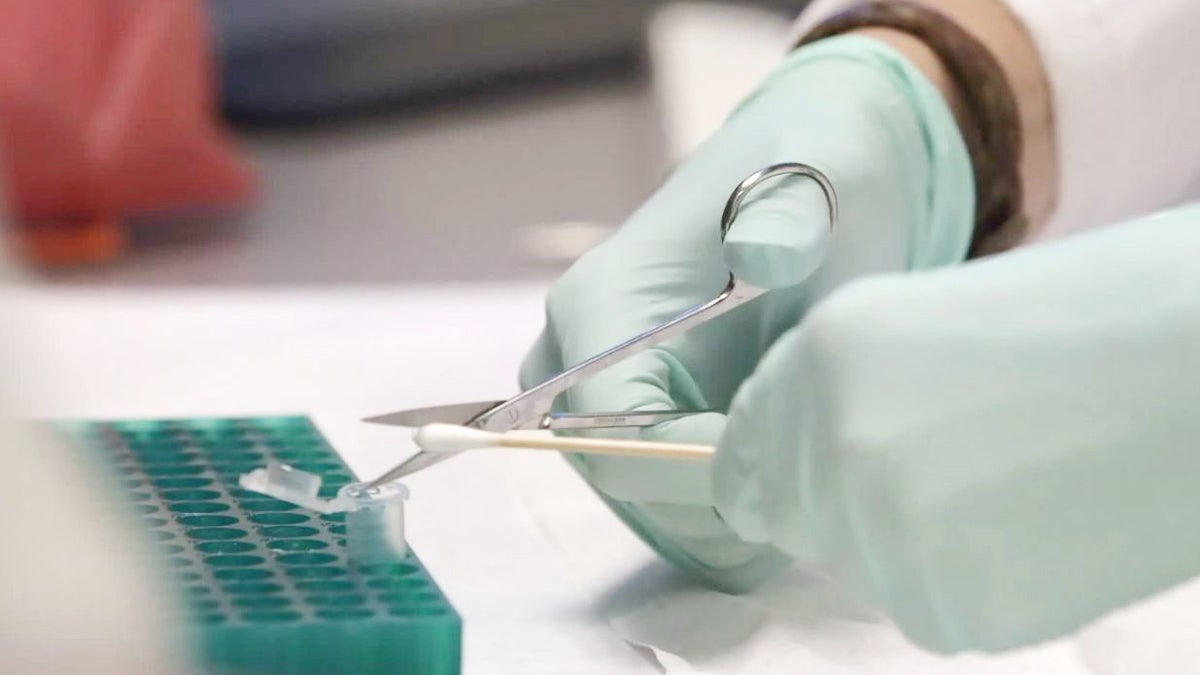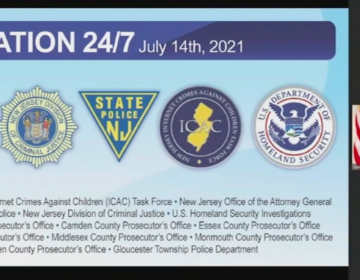N.J. Attorney General mulls creating statewide tracking system for rape kits
An audit shows police departments in New Jersey have different standards for handling rape kits. The N.J. Attorney General is considering implementing a statewide standard.

In a Feb. 17, 2016 file photo, the Idaho State Police Forensic Services lab tests for DNA samples. (Idaho Press-Tribune via Idaho State Police via AP, file)
New Jersey is considering setting up a statewide tracking system for rape kits, after an audit found that police departments across the state had inconsistent — or nonexistent — policies for how to handle the forensic evidence from sex crimes.
Attorney General Gurbir Grewal’s office is assembling a working group to study how the tracking system would function and how much it would cost taxpayers.
“New Jersey remains at the forefront of nationwide best practices and standards in our efforts to stamp out sexual violence,” said spokesman Peter Aseltine. “Our commitment to further improve is exactly why we will use the findings of this audit to continue to build on the progress we have made.”
The state auditor’s investigation also found that there is no backlog for testing rape kits in state forensic labs, as has been the case in other states. There have been questions among New Jersey lawmakers about whether such a backlog existed. The Legislature recently approved a bill that would require the AG’s office to study the issue.
Sexual violence prevention advocates applauded the state for conducting the audit but said it was not surprising that the hundreds of law enforcement agencies across the state lacked standardized policies for processing rape kits given New Jersey’s ingrained tradition of home rule.
“For victims of what the FBI recognizes as the second-most violent crime, there should be consistency,” said Patricia Teffenhart, executive director of the New Jersey Coalition Against Sexual Assault.
Teffenhart praised a 2018 directive issued by Grewal that standardized how law enforcement agencies in the state must respond to sexual assault victims but said more could be done when it comes to rape kits.
“What we’re moving toward is a model that will allow there to be more consistency across the state to ensure that a survivor in Sussex [County] has their really critical forensic medical evidence saved and retained in the same way as a survivor in Essex or Salem,” she said.
Aseltine said that law enforcement agencies have to submit written policies on how to handle rape kits to the state by the end of this year as part of the 2018 directive.
Between July 10, 2014, and August 31, 2018, the period studied by the auditors, state law enforcement agencies collected 5,931 rape kits, also known as Sexual Assult Forensic Examination Kits or SAFE Kits. Nearly half were never tested, according to the audit.
Many rape kits are not sent for testing because law enforcement agencies are blocked from testing a kit when the victim does not want to cooperate and are required to keep them for five years.
But in a survey of hundreds of New Jersey law enforcement agencies, auditors found that rape kits were also not tested because an investigator thought the sexual act was consensual or because the victim had a history of unfounded allegations, among other reasons.
Two-thirds of law enforcement agencies that responded to the survey had informal policies or none at all for determining when to send rape kits for testing.
WHYY is your source for fact-based, in-depth journalism and information. As a nonprofit organization, we rely on financial support from readers like you. Please give today.



